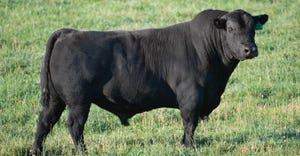Colombia puts restrictions on U.S. beef due to H5N1 in dairy cattle
USMEF encouraged vast majority of trading partners are following the science.

Colombia is now restricting fresh/frozen beef and beef products derived from cattle slaughtered within eight states where avian influenza A (H5N1) virus was detected in dairy cattle.
According to the USDA Food Safety and Inspection Service, Colombia has imposed temporary restrictions on raw bovine meat products. If exporters have a valid import permit, shipments may still be held at the port.
As of April 15, the country will no longer accept products from cattle slaughtered in Idaho, Kansas, Michigan, New Mexico, North Carolina, Ohio, South Dakota and Texas.
Colombia is the largest South American market for U.S. agricultural products and the seventh-largest market for U.S. food and beverage exports globally. According to the USDA Foreign Agricultural Service, since the U.S. – Colombia Trade Promotion Agreement was implemented in 2012, U.S. agricultural exports have grown by more than 235% to a record $3.7 billion in 2023. However, beef is a small part of that with the U.S. shipping just 7,642 metric tons of beef to Colombia, a $39,167 value, in 2023.
In a statement issued Friday, U.S. Meat Export Federation pointed out the restrictions have no scientific basis and Colombia is the only country that has officially restricted imports of U.S. beef.
“The United States is Colombia’s largest supplier of imported beef, and Colombia’s attempt to suspend beef imports from specific U.S. states is unworkable and misguided. It has created uncertainty for Colombian importers and their customers as well as their suppliers, and will greatly disrupt trade. USMEF appreciates the efforts of the U.S. government to address Colombian officials’ concerns and we are hopeful that this matter can be resolved as soon as possible.
“The U.S. exported about $40 million in beef and beef products to Colombia last year, so it is certainly an active market but represents a relatively small percentage of total exports (which were valued at nearly $10 billion in 2023).”
After the USDA issued a nationwide order requiring lactating dairy cows to test negative for HPAI before interstate transport, the Meat Institute issued a statement maintaining that properly prepared beef remains safe to eat and called for the USDA and the Centers for Disease Control and Prevention to provide worker safety guidance specific to beef processors to ensure workers are protected from infection.
“We are also calling on USDA and CDC to issue additional, specific guidance for beef processing facilities to ensure USDA inspectors and meat company workers are protected from infection,” said Julie Anna Potts, president and CEO of the Meat Institute.
“It is important to ensure the free flow of healthy animals to slaughter. The Meat Institute and its members will continue to work with USDA, state and local veterinarians and our cattle producer partners to both stop the spread of the virus and to ensure beef production continues.”
About the Author(s)
You May Also Like




.png?width=300&auto=webp&quality=80&disable=upscale)
